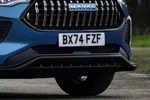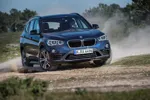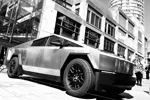“They must show confidence and keep Rovers on their forecourts,” said Mr Cowling. “If they are seen to do that, people will still want to buy them. But if they stick them out of sight, retail buyers will lose interest in the marque.”
Many people drove cars which were no longer made and the issue was one of confidence. The image of Rover would be jeopardised if dealers down-scaled the marque as part of their overall operation.
“If a dealer has Rover at their largest site, and swops it with say Hyundai at its smallest, this would have an effect on residuals,” said Mr Cowling. Mark Norman, Cap Monitor editor, said it was essential for Alchemy/MG Car Company to convince potential buyers that there would continue to be a supply of spares.
“Four in five cars on the road are obsolete and when the manufacturer was GM, VW or Nissan people did not worry about spares,” he said. “It is different with the company taking over the Rover marque.”
Cap Monitor estimates that, on average, Rover residuals have fallen by only £250-£300 since the announcement. It has removed the premium given to Rovers, which was based on the expected strength of the marque in 2003.
“We based that on the assumption dealers would have the Rover 30 and new Mini,” said Mr Norman. “There is though every chance that Rover residuals will hold up well.
Adrian Rushmore, Glass's Guide chief car editor, said used car dealers were helping to shore up the residual values of Rover models. Values had been expected to slump after the announcement of the break-up, but that was before the industry's mood was assessed.















Login to comment
Comments
No comments have been made yet.